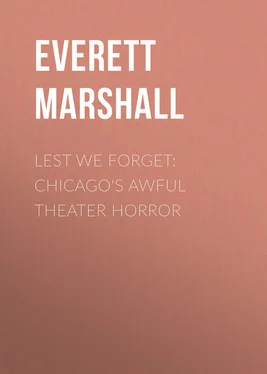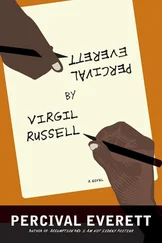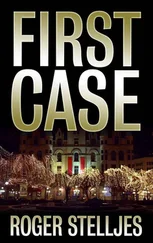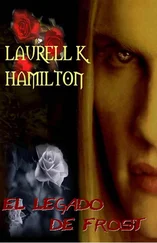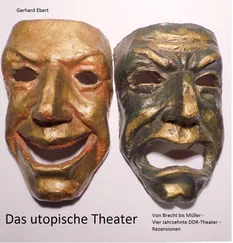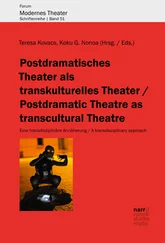Marshall Everett - Lest We Forget - Chicago's Awful Theater Horror
Здесь есть возможность читать онлайн «Marshall Everett - Lest We Forget - Chicago's Awful Theater Horror» — ознакомительный отрывок электронной книги совершенно бесплатно, а после прочтения отрывка купить полную версию. В некоторых случаях можно слушать аудио, скачать через торрент в формате fb2 и присутствует краткое содержание. Издательство: Иностранный паблик, Жанр: foreign_antique, foreign_prose, на английском языке. Описание произведения, (предисловие) а так же отзывы посетителей доступны на портале библиотеки ЛибКат.
- Название:Lest We Forget: Chicago's Awful Theater Horror
- Автор:
- Издательство:Иностранный паблик
- Жанр:
- Год:неизвестен
- ISBN:нет данных
- Рейтинг книги:3 / 5. Голосов: 1
-
Избранное:Добавить в избранное
- Отзывы:
-
Ваша оценка:
- 60
- 1
- 2
- 3
- 4
- 5
Lest We Forget: Chicago's Awful Theater Horror: краткое содержание, описание и аннотация
Предлагаем к чтению аннотацию, описание, краткое содержание или предисловие (зависит от того, что написал сам автор книги «Lest We Forget: Chicago's Awful Theater Horror»). Если вы не нашли необходимую информацию о книге — напишите в комментариях, мы постараемся отыскать её.
Lest We Forget: Chicago's Awful Theater Horror — читать онлайн ознакомительный отрывок
Ниже представлен текст книги, разбитый по страницам. Система сохранения места последней прочитанной страницы, позволяет с удобством читать онлайн бесплатно книгу «Lest We Forget: Chicago's Awful Theater Horror», без необходимости каждый раз заново искать на чём Вы остановились. Поставьте закладку, и сможете в любой момент перейти на страницу, на которой закончили чтение.
Интервал:
Закладка:
"Five bushel baskets were filled with women's purses gathered by the police. A huge pile of garments was removed to a near-by saloon, where an officer guards them pending removal to some more appropriate place. The shoes and overshoes picked up among the seats fill two barrels to overflowing.
"The fire manifested itself in the flies above the stage during the second act. The double octette was singing 'In the Pale Moonlight' when the tragedy swept mirth and music aside, to give way to a more somber and frightful performance. Confusion on the stage, panic in the auditorium, phenomenal spread of the incipient blaze, failure of the asbestos fire curtain to fall in place when lowered followed in rapid progress, with the holocaust as the climax."
But to return to the narrative of what happened immediately after the first alarm, as gathered by the collaborators of this work. There was a wild, futile dash – futile because few of the terrified participants succeeded in reaching the outer air. Persons in the rear of the theater building knew full well that a holocaust was in progress. There fire escapes and stage doors thronged with refugees, half clad and hysterical chorus girls flocking into the alley, and crackling flames leaping higher and higher from the flimsy stage and bursting from windows, told only too plainly what was in progress within. At the front, half a block distant, in Randolph street, ominous silence maintained. A mere handful of people burst out, those who had occupied rear seats and pushed by the ushers who sought to restrain them and quiet their fears. Loiterers about the ornate lobby scarcely sniffed a suggestion of impending disaster before the fire apparatus began to arrive with clanging bells.
Those ushers who held back the straining, anxious spectators who sought escape at the first mild suggestion of danger – for what widespread woe are they responsible!
Mere boys of tender years and meager experience, what knew they of the awful possibilities behind the spell of excitement upon the stage? Only two weeks before there had been an incipient blaze there that had been extinguished without the knowledge of the audience.
Like all the rest of the world that now stands in shuddering wonderment, these boys scoffed at the thought of real danger in the massive pile of steel, stone and terra cotta, with its brave and shimmering veneer of glistening marble, stained glass of many hues, rich tapestries and drapings, and cold, aristocratic tints of red and old gold. And so with uplifted hands they turned back those whose sense of caution prompted them to leave at the outset. Surely disaster could not overtake the regal Iroquois in its first flush of pomp, pride and superiority. It was their sacred duty to see that no unseemly break marred the decorum established for the guidance of audiences at the Iroquois, and that duty was fully discharged.
Thus it was that the wild hegira did not begin from the front until the arrival of the fire department. Then pandemonium itself broke loose. All restraining influences from the stage had ceased. At the appearance of the all-consuming wave of flame sweeping across the auditorium the boy ushers abandoned their posts and fled for their lives, leaving the packed audience to do the same unhampered.
Unhampered – not quite! Darkness descending upon the scene, doors locked against the frightened multitude, fire escapes cut off by tongues of flame and exits and stairways choked with the bodies of those who died fighting to reach safety hampered many – at least the six hundred carried out later mangled and roasted, their features and limbs twisted and distorted until little semblance to humanity remained. After the first wild dash, in which a large portion of those on the main floor escaped, the blackness of night settled upon the long marble foyer leading from Randolph street to the auditorium. It settled in a cloud of black, fire laden smoke – death in nebulous forms defying fire fighter and rescuer alike to enter the great corridor. None entered, and, more pitiful still, none came forth.
While this situation maintained in front a vastly different scene unfolded in the rear. The theater formed a great L, extending north from Randolph street to an alley and, in the rear, west to Dearborn street. This last projection, the toe of the L, was occupied by the stage, theoretically the finest in America, if not in the world. Thus the auditorium and stage occupied the extreme northern part of the structure, paralleling an alley extending on a line with Randolph street from State street to Dearborn street. This alley wall was pierced by many windows and emergency exits and was studded with fire escapes built in the form of iron galleries, and stairways hugging close to the wall leading to the alley.
To these exits and the long, grim galleries of fire escapes the herded, fire-hunted audience surged. Those who reached doors that responded to their efforts found themselves pushed along the galleries by the resistless crush behind. As was the case in front, half way to safety another stream of humanity was encountered pouring out at right angles from another portion of the house. Coming together with the impact of opposing armies the two hosts of refugees gave unwilling and terrible answer to the time worn problem as to the outcome of an irresistible force encountering an immovable body. Both in front and rear great mounds of dead spelled annihilation as the answer. In front over 200 corpses piled in a twenty-foot angle of a stairway where two balcony exits merged told the terrible tale, and rendered both passages useless for egress, the dead being piled up in wall-like formation ten feet high.
In the rear an alley strewn with mangled men, women and children writhing in agony on the icy pavement, or relieved of their sufferings by death, lent eloquent corroboration to the solution of the problem.
It was in the rear that the true horror of the fire was most fully disclosed. There no towering mosaic studded walls or kindly mantle of smoke shut out the horrid sight. From its opening scene to its silent, ghastly denouement the successive details of this greatest of modern tragedies was forced upon the view to be stamped upon the memory of the unwilling beholder with an impressiveness that only death will blot out.
After the first great impact had hurled the overflow of the fire-escape gallery into the alley yawning far below, the crush of humanity swept onward, downward to where safety beckoned. When the advance guard had all but reached the precious goal, with only a few feet of iron gallery and one more stairway to traverse, the crowning horror of the day unfolded itself. Right in the path of the advancing horde a steel window shutter flew back, impelled by the terrific energy of an immeasurable volume of pent up superheated air.
The clang of the steel shutter swinging back on its hinges against the brick wall sounded the death knell of another host of victims, for in its wake came a huge tongue of lurid flame, leaping on high in the ecstasy of release from its stifling furnace. Fiercely in the faces of the refugees beat this agency of death. Before its withering blast the victims fell like prairie grass before an autumn blaze. Those further back waited for no more, but precipitated themselves headlong into the alley rather than face the fiery furnace that loomed up barring the way to hope.
It would be well to draw the curtain upon this awful scene of suffering and death in the gloomy alley were it not for one circumstance that stands forth a glorious example of the heights that may be attained by the modest hero who moves about unsuspected in his daily life until calamity affords opportunity to show the stuff he is made of. High up in the building occupied by the law, dental and pharmacy schools of the Northwestern University, directly across the alley from the burning theater, a number of such men were at work. They were horny handed sons of toil – painters, paper hangers and cleaners repairing minor damage caused by an insignificant fire in the university building a few weeks before. One glance at the seething vortex of death below transformed them into heroes whose deeds would put many a man to shame whose memory is kept alive by stately column or flattering memorial tablet.
Читать дальшеИнтервал:
Закладка:
Похожие книги на «Lest We Forget: Chicago's Awful Theater Horror»
Представляем Вашему вниманию похожие книги на «Lest We Forget: Chicago's Awful Theater Horror» списком для выбора. Мы отобрали схожую по названию и смыслу литературу в надежде предоставить читателям больше вариантов отыскать новые, интересные, ещё непрочитанные произведения.
Обсуждение, отзывы о книге «Lest We Forget: Chicago's Awful Theater Horror» и просто собственные мнения читателей. Оставьте ваши комментарии, напишите, что Вы думаете о произведении, его смысле или главных героях. Укажите что конкретно понравилось, а что нет, и почему Вы так считаете.
